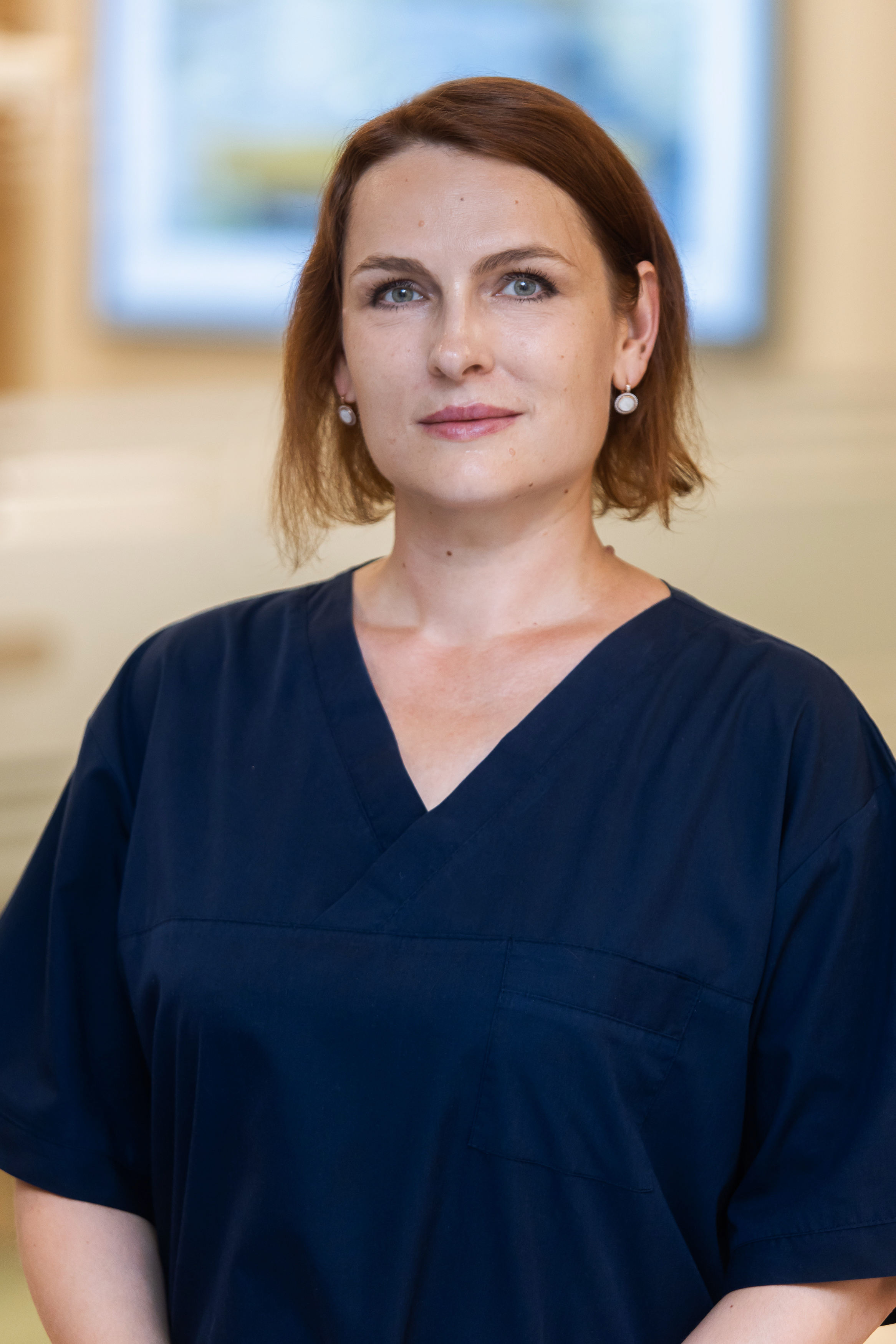Information about the doctor Liutfaliieva Anna Oleksiivna
Category: First
Education:
- Kyiv Institute of Modern Psychology and Psychotherapy, specialization "Clinical Psychology"
Membership in associations, societies; attending conferences, thematic improvement courses:
- member of the Ukrainian School of Group Analysis (USGA);
- Ukrainian membership in the Complex Trauma Institute (UK), a joint project of British and Ukrainian psychotherapists created to support Ukrainian mental health professionals in the context of war.
Scientific activity:
- publications in the scientific journal Kyiv Journal of Modern Psychology and Psychotherapy;
- participation in the scientific and practical conference of students and postgraduates dedicated to the All-Ukrainian Day of Psychologist "War and Peace: Psychology in the Service of Humanity".
Areas of professional development:
- work with traumatic memories, application of theory and tools for safe trauma therapy, including somatic exercises;
- research on social and psychological adaptation of forced migrants;
- member of analytical and supervisory groups;
- Participation in specialized seminars and conferences, advanced training courses, gaining additional professional experience through interaction with colleagues;
- Improves qualifications in the field of psychoanalysis;
- advanced training in symbolic drama (catatonic-imaginative psychotherapy).
Priority areas in clinical practice:
- work with adolescents;
- work with the military and veterans, including work with combat stress, its impact on the body, psychopathology and comorbid conditions, psychological trauma and post-traumatic stress disorder (PTSD);
- psychological counseling and psychotherapy for patients with various needs, such as traumatic memories, complex emotional states, interpersonal relationships, self-acceptance, separation, boundaries, improving the quality of life, etc;
- working with patients who have experienced loss, grief, and suicidal intentions.
Tell us about your professional interests other than your specialization:
- "I am interested in various areas of psychology, including existential psychology and logotherapy. Today's challenges make us war psychologists, even if we work with civilians. Each area of psychotherapy has useful and unique tools, but the common denominator is the psychotherapy of humanity."
Hobbies, favorite movies, books:
- "Sports are important to me. It helps reduce mental stress, gives me energy and confidence, and helps me keep fit. Besides, I love traveling, conquering mountains and meeting new interesting people. Each new route expands my horizons, and each conquered peak shows my capabilities. The people I meet in my life enrich me with new experiences.
- As for my favorite movies, they include Gran Turismo, Eternal Sunshine of the Spotless Mind, Smart Will Hunting, The Neverending Story, and Thank You for Your Service.
- As for my favorite books, they include The Arc de Triomphe, The Black Obelisk, Love Thy Neighbor, The Three Comrades by E.M. Remarque, Saying Yes to Life by W. Frankl, When Nietzsche Cried, Liars on the Couch by Irwin Yalom, Escape from Freedom by E. Fromm, The Ghost in Love by M. Levy, Flowers for Algernon by D. Keyes. When reading books, I often notice certain patterns that are repeated in our time, such as relationships, the feeling of emigrants, the behavior of people surviving, crises and existential questions, as well as human vulnerability."
Doctor's advice:
- "It is important to be able to take care of your mental health and understand your needs. Even in difficult moments, move towards your goal gradually, step by step. Sometimes you need to accept your vulnerability and seek help from specialists. We often hear about "traumatic growth," and it does happen, but it is mainly about working through the trauma. It is important to remember that we need to take care of ourselves and allow ourselves to be people with our emotions and feelings. Today, going to a psychologist or participating in support groups does not necessarily mean a clinical diagnosis or illness. It's more about fulfilling the need to tell your story so that your experience is recognized and accepted."
